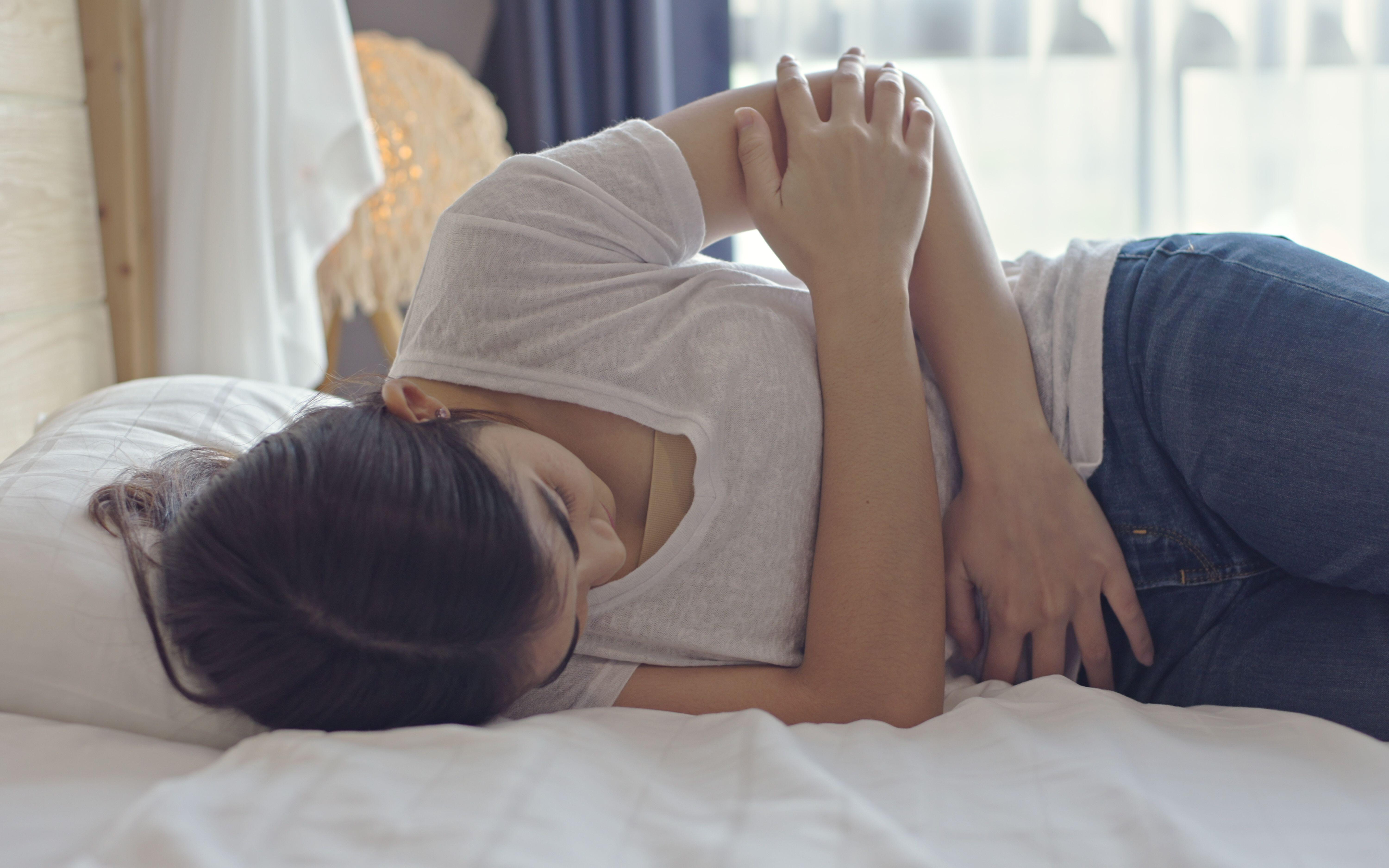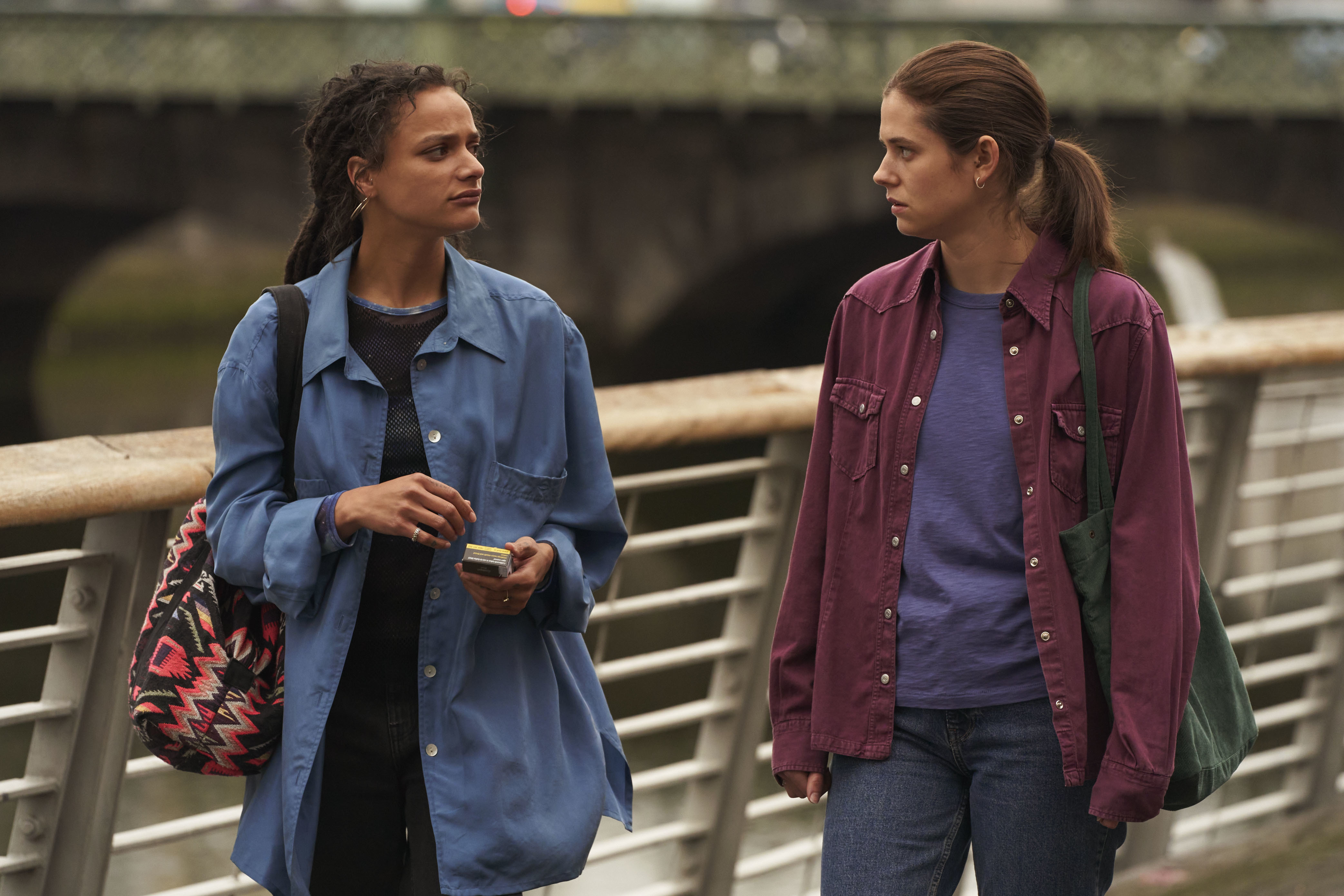Conversations With Friends – the new Sally Rooney BBC adaptation – has certainly got people talking.
It’s fair to say the central character Frances, brilliantly played by Alison Oliver, is a little irritating. A navel-gazing 21-year-old trying to make her way as a writer, navigate complex relationships and support her alcoholic dad – we see her bully a poor Tinder date for admiring Yeats, and get called out by her ex, Bobbi (played by a luminous Sasha Lane) for being patronising.
But one thing we can thank her for? Frances has endometriosis – and depictions of the condition in literary fiction and TV dramas are rare.
In fact, despite being relatively common, affecting around 10-15% of women of reproductive age and 30-50% of women in general, endometriosis suffers from a severe lack of awareness in general.
And for me – as I gear up for endometriosis surgery next month – Conversation With Friends’ honest portrait of how difficult the condition can be, could not have come at a better time.
Awareness is vital
Many women wait years to get a diagnosis and help for endometriosis, with symptoms often dismissed as ‘just bad periods’.
It causes tissue similar to the lining of the womb to develop outside the uterus, which grows and bleeds with each menstrual cycle – leading to scarring, adhesions, ‘chocolate’ blood-filled cysts, and symptoms including pelvic pain, heavy periods, pain during sex, infertility, plus bowel and urinary problems.
While severity can vary, is can have a debilitating impact. Surgery to remove endometriosis tissue can help, as well as pain relief and hormonal treatments, but there’s no cure.
In Conversations With Friends, the producers have opted to show Frances’ experiences with a notable lack of squeamishness – we see her crouch on the floor with painkillers, faint in the street, be rushed to hospital with a suspected miscarriage, and struggle with how endometriosis could impact her long-term fertility – which even leads her to end a relationship she values.
Some viewers have questioned how quickly Frances is diagnosed. Typically, according to the charity Endometriosis UK, it takes around seven years.
But in revealing what it is really like to live with a condition that – whilst not fatal, is certainly ‘complicated’, as Frances’ doctor tells her – Conservations With Friends has broken the mould.
A realistic depiction
The pain Frances experiences is etched onto her face; we see her discomfort when her partner, Nick, tells her how much he wants a child, and her panic as she calls to her mother whilst bleeding and vomiting in the bathroom. None of it is minimised.

As with many gynaecological health issues, it can feel difficult to openly discuss how endometriosis affects you – which is why depictions like this are so important.
And as senior consultant gynaecologist Dr Nitu Bajekal, co-author of Living PCOS Free, says: “In a TV programme, it is important to show the process of getting a diagnosis” – so not only is awareness of the condition raised, but viewers can see that help and treatment is available.
Bajekal says there are some situations where people get diagnosed more quickly – sometimes because they are aware of their risk through their family history (endometriosis can tend to run in families), or because “they see a doctor who asks the right questions and offers the right tests”.
However, she adds that symptoms “do get overlooked very often, leaving women suffering from debilitating chronic pelvic pain” for years before a diagnosis is considered.
Often, endometriosis is only picked up when women are struggling to conceive, and keyhole surgery – a laparoscopy – is currently the only means of a definitive diagnosis.
Dr Bajekal suggests to “be aware of your own body and note any changes” – particularly if over-the-counter pain medication is not helping with period pain – and says women should seek medical advice if they suspect they have endometriosis.
She also believes it’s helpful to avoid smoking and alcohol and to try and eat a whole-food, predominantly plant-based diet, which may be beneficial.
Hidden struggles
It’s gratifying to see some of the more hidden difficulties endometriosis causes reflected on screen. In Conversations With Friends, not only do we see Frances in pain, we also see how the condition affects her mood and sense of self.
Chloe Smith, a 25-year-old SEO manager from Reading, who also has endometriosis, says seeing Frances grapple with the condition is “empowering because symptoms like that are ones we often hide, even from people we are closest with.

“Seeing Frances on the floor in the bathroom in episode one, even before endometriosis is mentioned, resonated with me because I’ve been in that situation so many times,” Smith adds. “It made me feel seen in a way a lot of shows don’t.”
She’s also grateful for how the series explores Frances’ reactions to learning she might not be able to have children. “It’s a really tough topic to approach,” says Smith.
“Fertility is something that’s often thrust right in the centre of discussions around endometriosis, because of where it’s typically located in the body.
“I’ve lost count of the number of times I’ve been asked when I’m having kids when I might not actually be able to.
It’s important [that this aspect of endometriosis is highlighted] because it’s something we’ve all thought about.”
While she believes Frances’ diagnosis is “too quick to be realistic”, and that it would have been helpful to have some of the frustrations of getting diagnosed reflected, Smith agrees it’s important to speak out about the condition and “not shut up about it”.
As with so many women’s health conditions, speaking up can sometimes feel like oversharing, or even shameful.
Having these conversations may be uncomfortable, but they also help to destigmatise the condition and ultimately show that help is out there.





